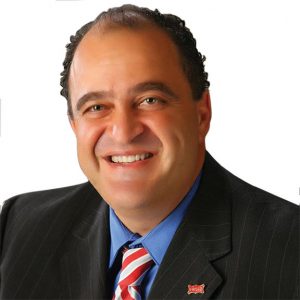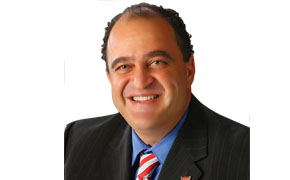A look at how teachers’ personal political views influence students’ views in the classroom

With the Texas primaries wrapping up this March and gubernatorial candidates Wendy Davis and Greg Abbott going head-to-head in the race to be Texas’s first new governor in 14 years, it’s only natural for History Department Chair Steve Kramer to discuss elections and politics in his classroom. Politics can often be a touchy subject for students at Hockaday. More often than not, however, there is no way to keep the politicking outside of the Hocka-bubble.
Within the Hockaday History Department, there are varying views on the role politics can play in the classroom. Often, the study of economics and history closely intertwines with that of politics, and teachers find themselves on different ends of the spectrum regarding how open they are with their political ideologies. While some teachers are quite frank about their political opinions when teaching, others are more discreet and prefer that their students not know their political preferences.
Upper School AP Economics teacher Joni Palmer prefers not to bring her opinions into the classroom when teaching economic theory and policy. “My philosophy is that I hope to give students the tools so that they can analyze the problems, the policies, the solutions that are proposed on their own,” she said. While Palmer feels strongly about certain issues, she’s careful not to let her students know how she feels.
“I spend time thinking about even the words that I choose when I’m talking about certain policy measures that align themselves with politics,” Palmer said. “I think even the way you present a topic, even down to the way that your voice changes or the way that you ask questions could lead students in a certain direction.”
History Department Chair and Young Democrats Club sponsor Steve Kramer is one history teacher who is very candid about his liberal views, not only in Young Democrats meetings but also in his classes.
“There are times when for whatever reason I will go on what I would call a rant,” Kramer said. In both Kramer’s AP U.S. History, AP Modern European History and U.S. Government classes, he said he still encourages discussion, dissent and exploration of beliefs.
“In my eyes, a teacher should play devil’s advocate no matter what the student’s position,” Mayor of Frisco Maher Maso said. Maso said ideally teachers should not state their views, but they especially should not become very defensive of their position.
“In Government, for example, I will state my views, but then I’ll say, ‘Now those are my views and they may not be right,’” Kramer said. “So I try to encourage kids to come up with their own views.”
While the degrees of openness vary among teachers, one thing remains constant: all teachers want the girls to be able to express their views comfortably, in an informed manner that allows for varying levels of discussion.
“Ideally, I think leaving opinions out of the classroom would be a good approach,” said senior Anna Herbelin, co-founder of the Young Independents Club. “Teachers should still have the right to express their beliefs, but every belief should be taken with a grain of salt.”
Palmer said she tries her very best to always tell both sides of every story, both possible economic theories and historical interpretations. “What’s interesting about economics is that two different economists can look at the same problem and the same data and come up with two noticeably different solutions,” Palmer said. “And the question is always: how is that possible?”
For example, one issue Palmer’s class looked at was the Great Depression and the nation’s emergence out of it. While one economist theorizes that the New Deal had the greatest influence on America’s recovery, another argues that it was World War II and its demand for labor and production that sprung the U.S. out of its worst economic crisis in history.
“In a lot of ways, I think that my own political opinion might sway the way that students think about the problems,” Palmer said. “And I really want them to think about it on their own.”
Adrian Martinez, who substituted for Palmer when she was on maternity leave in September and October, had a starkly different approach to teaching economics.
Martinez was very upfront with his conservative political views before teaching the class and made sure the girls knew how that would influence his presentation of information and policy material.
“I don’t believe that you can fully segregate your personal beliefs from the material that you’re teaching,” he said. “It is inevitable that your views will ultimately influence your teaching.”
Martinez doesn’t think his views did much to influence the students and their political preferences, but in fact, stirred up even more discussion in the classroom.
“Hockaday students are very independent-minded and strong-willed. I don’t think my powers of persuasion would convince them to go one way or the other in two months,” he said. “Part of it was even getting students riled up and stirring discussion.”
Often, the most vocal students in Martinez’s class were the liberal students. Martinez said they asked very tough questions and challenged him on several economic theories and solutions. “Those girls responded very well, and it made for some very lively discussion,” he said.
Martinez said he did have one student who was a little more wary of his political discussions intertwining with the way he taught economics but that it didn’t detract from her overall experience and how much she participated in the class.
“I really don’t think that my politics inhibited students, and I certainly hope it didn’t,” Martinez said.
– Anisha Anand







